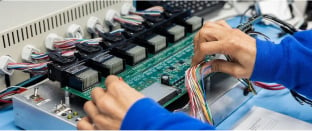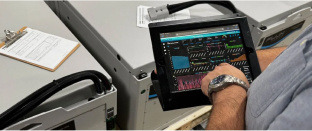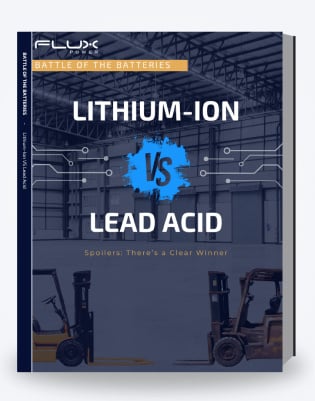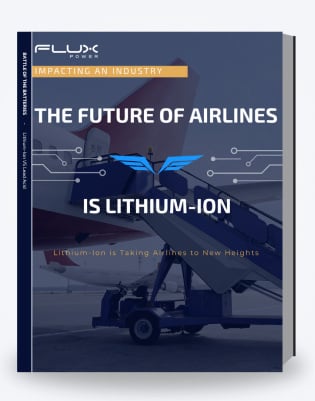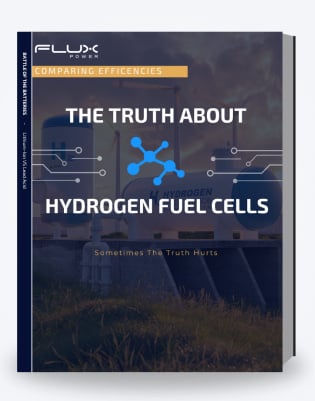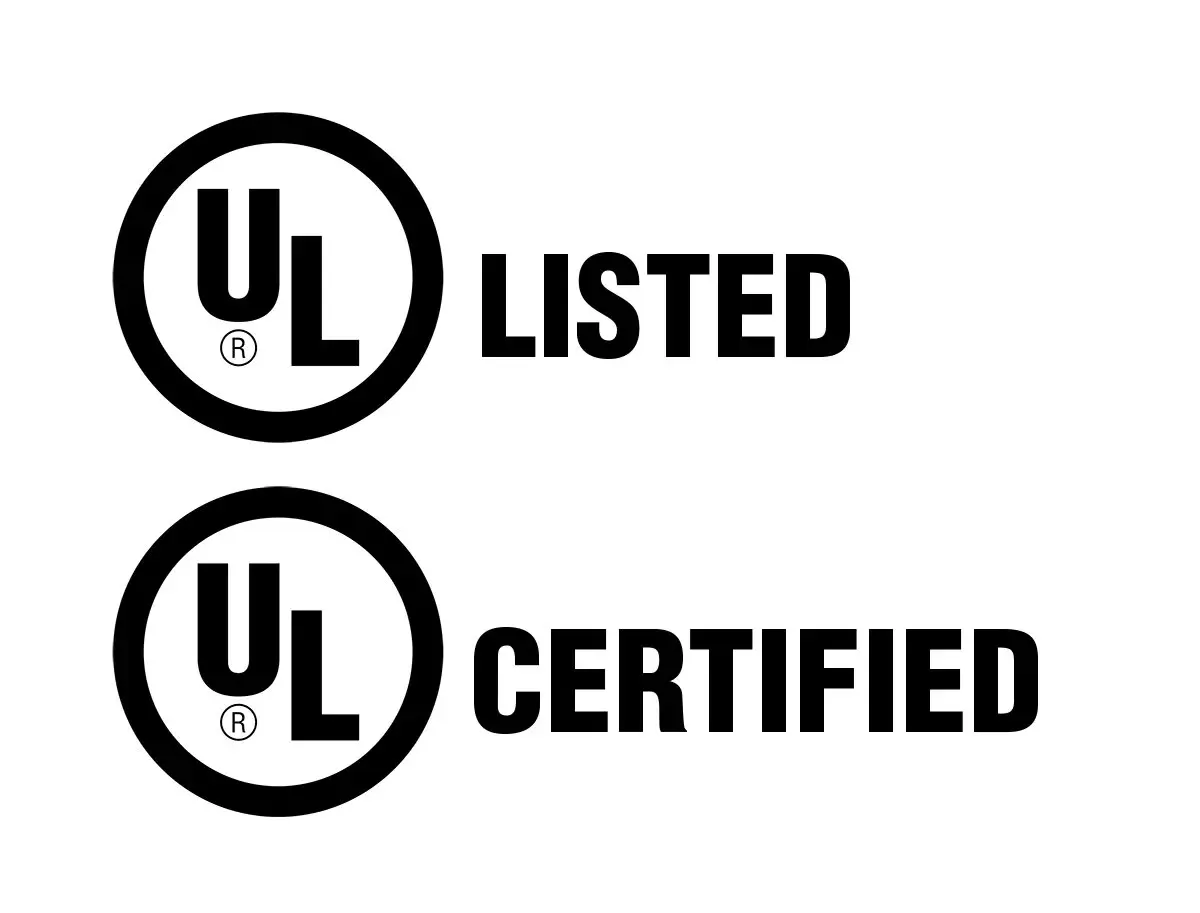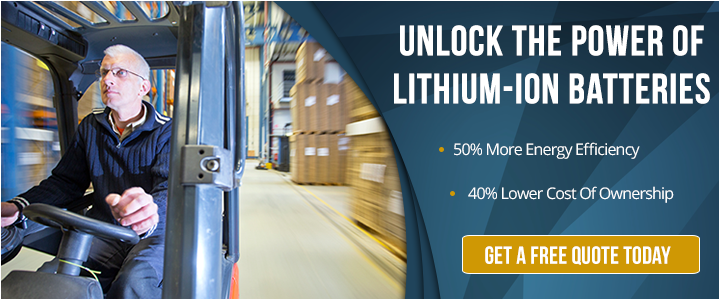One of the ways you can be certain your battery is meeting industry safety and performance standards is by checking to see if the battery is UL Listed.
It’s important to know that not all lithium-ion batteries are created equal. There are a lot of factors that go into creating a battery that is high-performing, long-lasting and most importantly, safe.
Underwriters Laboratories (UL) evaluates parameters such as the battery’s chemistry, manufacturing process and testing protocols, to help establish which batteries are the most safe.
 To better understand why UL Listing is important, we’ll explore below:
To better understand why UL Listing is important, we’ll explore below:
- Why quality matters with lithium-ion battery packs
- How UL Listing contributes to the safety standards in the battery industry
- What it means to be UL Listed
- The designations you should look for when choosing the lithium-ion battery that will power your fleet
Why Quality Matters
No matter which type of battery you purchase, it’s important to ensure that a product has been third-party tested to confirm its quality, especially when safety is paramount.
For example, Flux Power’s light EV LiFT battery packs were the first lithium-ion battery packs for forklift use listed to UL 2271. This means that the batteries used in light electric vehicle applications meet safety standard requirements and have undergone simulated abuse testing based on the manufacturer’s specified charge and discharge parameters, according to UL.
Why does this matter when it comes to quality? Testing to the UL standard covers several areas, including electrical, mechanical and environmental requirements. UL will also regularly inspect the battery pack factory to ensure quality standards remain high and continue to be made so that they meet the same critical safety components as when first evaluated.
It’s also important to note that when independent experts examine the quality standards of battery packs or their components, it can impact the industry’s acceptance of new cutting-edge new lithium battery technology.
Compared to traditional lead-acid batteries, which have been used in the material handling industry for decades, this new technology is cleaner, safer, more efficient and longer lasting.
Other benefits that showcase the quality of lithium-ion batteries include:
- Faster charging that can be done on an opportunity basis (so each battery can be used across multiple shifts)
- Sustained power throughout discharge cycle - leading to as much as 50% energy savings when compared to a lead-acid battery
- Made from stable lithium-ion chemical composition that are sealed within the battery, so there is no risk of spills
- An internal battery management system that balances the cells and regulates temperatures
Several other benefits of incorporating lithium-ion batteries into your fleet can be found in our article, Why Does A Lithium-Ion Battery Work Best For Forklifts?
How UL Benefits Safety Standards
Underwriters Laboratories was established more than 100 years ago. It’s considered a worldwide leader in product safety testing and certification, across multiple industries and product types.
Here’s what the organization does:
- Tests for safety through comprehensive procedures.
- Requires that its standards are met before a certification is granted.
- Sends out a local UL field representative at least four times per year to ensure products are built in accordance with UL requirements.
To further safety standards in the battery manufacturing industry, Underwriters Laboratories also offers custom testing to meet design-specific needs, as well as helps workforces implement training that enhances safety and risk management.
Designations To Look For
Two of the most well-known designations UL awards are “UL Listed” and “UL Recognized.” When you’re looking at lithium-ion batteries, it’s important to understand the difference between the two.
UL Listed
Batteries with a UL Listing have been tested to meet nationally-recognized safety standards. They have been tested as complete final products, though complete components suitable for factory installation also can earn this designation.
An example of a UL Listed product would be a complete lithium-ion battery pack that has adhered to UL standard requirements and has undergone a rigorous testing process.
UL Recognized
A UL Recognized mark, on the other hand, focuses on components that are intended to be installed in another device, system or end product. They are not a final product. They also must be factory installed and may have restricted performance capabilities that limit their use.
When looking at lithium-ion batteries in particular, this mark restricts which trucks the battery is compatible with, and further testing of the end product is required to obtain a full UL Listing.
It’s important to note this designation only focuses on a component but does not mean the overall product has been UL Listed.
Another Note
While the above two designations are most widely known, there are multiple variations for UL’s Listing service depending on the country. Some Listings are for use in the United States, while other countries carry different safety requirements that may differ from U.S. standards.
What It Means To Be UL Listed
Products with a UL Listing have been tested to meet nationally-recognized safety standards. They have been tested as complete final products and found to be free from reasonably foreseeable risk of fire, electric shock and other hazards.
For battery manufacturers that are UL Certified, they agree to a specific list of guidelines and continued monitoring. A company must agree to rigorous examinations and regular site visits so a UL representative can ensure the company is maintaining compliance with the organization’s safety standards.
Lithium-ion batteries are creating a paradigm shift not only in the consumer world, but in the material handling industry as well. The numerous benefits of using a lithium-ion battery in your fleet make it an attractive choice for industrial equipment such as forklifts and walkie pallet jacks.
As with any new technology, however, questions about safety arise. It’s informative and helpful having a trusted independent third-party entity such as UL conduct extensive product testing and certification. Manufacturers getting UL Listings for their products provides end users with confidence that the safety of their employees and operations is prioritized.
Bottom Line
Understanding what the UL designations mean and why they are important is crucial to ensuring the lithium-ion battery you choose has been rigorously tested, so your equipment runs efficiently and safely.
Not all lithium-ion batteries are created equal. Checking to see if a battery is UL Listed is the best way to ensure it meets industry safety and performance standards … allowing you to prioritize the safety of your workers and the efficiency of your fleet.

